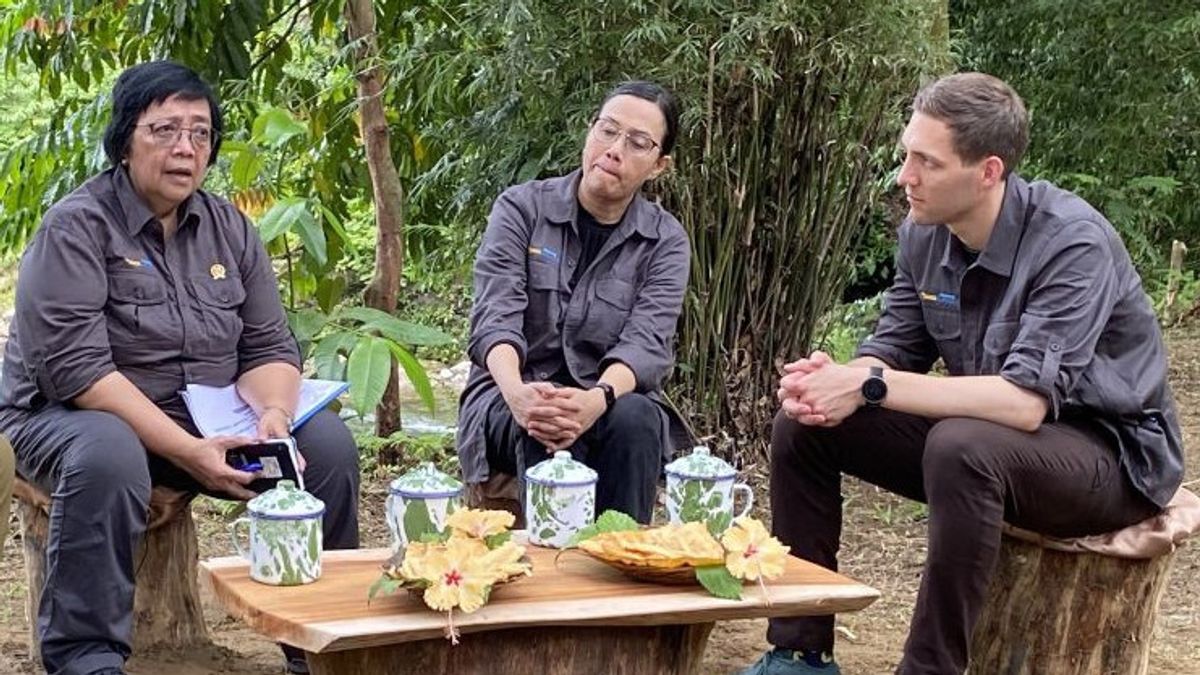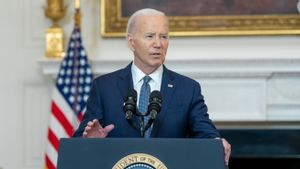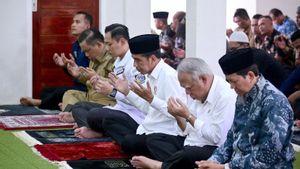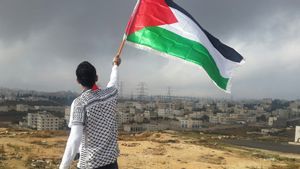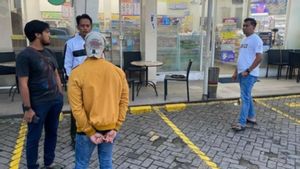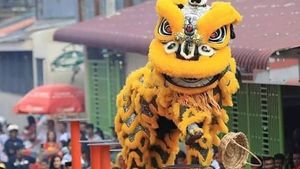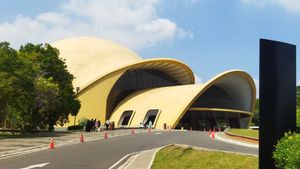JAKARTA - Indonesia and Norway are working together through funding based on the contribution (result based contribution) to reduce emissions from deforestation and forest degradation (REDD+). As a follow-up, the Minister of Environment and Forestry (LHK) RI Siti Nurbaya together with the Minister of Finance (Menkeu) RI Sri Mulyani and the Minister of Climate and the Norwegian Environment Andreas Bjorland Eriksen visited Gunung Leuser National Park.
During a visit to Bukit Lawang, Langkat Regency, North Sumatra on Saturday, June 1, Minister of Environment and Forestry Siti showed the beauty of the area that is included in the Leuser TN area and one of its most famous animals, Sumatran orangutan (Pongo abelii), to Minister of Finance Sri Mulyani and the Minister of Climate and Norwegian Environment Andreas.
Quoted from ANTARA, during the visit the three ministers saw two individual orangutans jumping from branches into branches in the middle of thick trees in Bukit Lawang.
On that occasion, the three of them also recorded podcasts in the middle of the forest in the context of World Environment Day, which is celebrated every June 5.
The visit also showed Indonesia's performance in reducing deforestation in order to support the achievement of Indonesia's FOLU Net Sink 2030 to support reducing greenhouse gas emissions in the forestry sector.
Sumatran orangutans themselves are one of the protected animals in Indonesia and are on the critically endangered list on the IUCN Red List.
SEE ALSO:
According to KLHK data in 2016, it is estimated that there are 71,820 individual orangutans on the islands of Sumatra and Kalimantan as a whole including Sabah and Serawak in a habitat of 17,460,000.
Sumatran orangutans are endemic to the island of Sumatra and are one of three species living in Indonesia with Tapanuli orangutans (Pongo Tapanuliensis) and Kalimantan orangutans (Pongo pygmaeus).
The KLHK previously launched the 2019 Indonesian Orangutan 2019-2029 Conservation Action Strategy and Plan (SRAK) to support orangutan conservation efforts and protect the population in the wild.
The English, Chinese, Japanese, Arabic, and French versions are automatically generated by the AI. So there may still be inaccuracies in translating, please always see Indonesian as our main language. (system supported by DigitalSiber.id)
